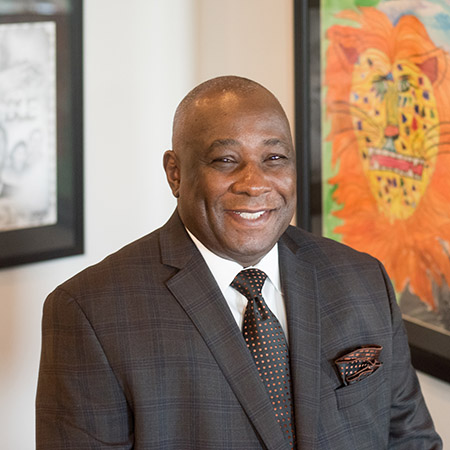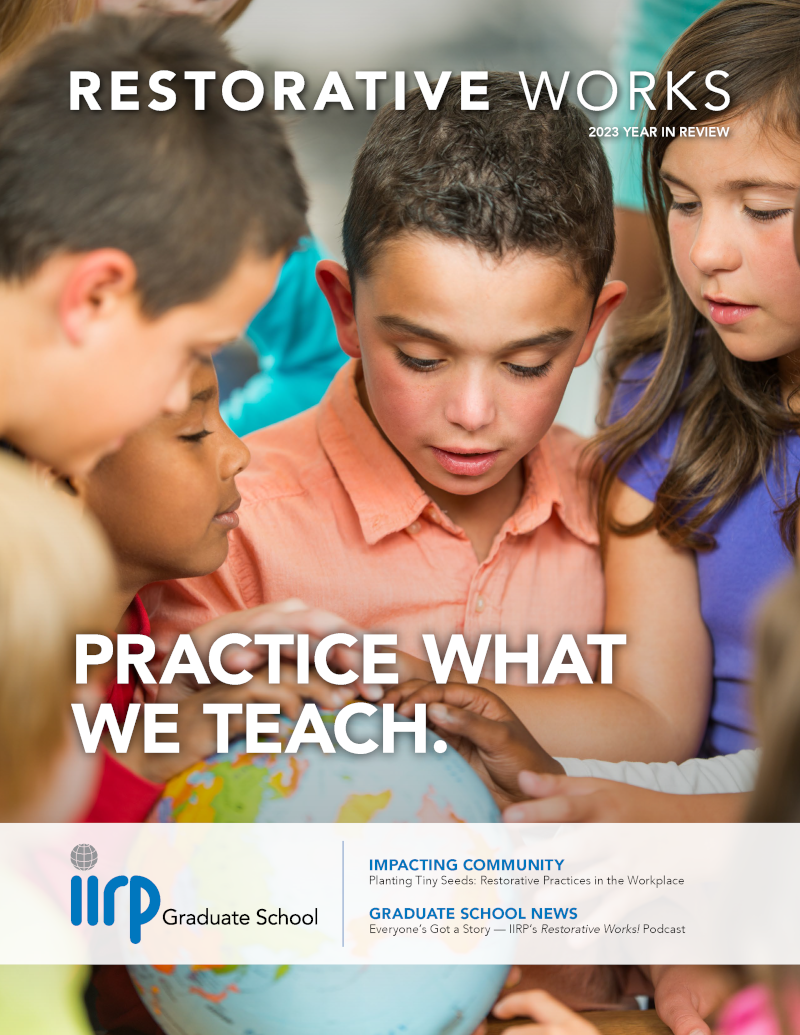 "The conference is an opportunity to bump shoulders with the restorative elite, who live and practice restorative practices on a day-to-day basis." - Robert Thornton, Senior Program Officer, Skillman FoundationThis is last in a series of interviews of sponsors of Strengthening the Spirit of Community, the IIRP World Conference in Detroit, MI, October 24-26, 2018. Sponsors are providing scholarships for Detroit community members, bringing a new level of connection and engagement to the conference. Robert Thornton, Senior Program Officer of the Skillman Foundation, explains why Skillman is a Supporter. He speaks about Skillman's work and why you should join them at the conference!
"The conference is an opportunity to bump shoulders with the restorative elite, who live and practice restorative practices on a day-to-day basis." - Robert Thornton, Senior Program Officer, Skillman FoundationThis is last in a series of interviews of sponsors of Strengthening the Spirit of Community, the IIRP World Conference in Detroit, MI, October 24-26, 2018. Sponsors are providing scholarships for Detroit community members, bringing a new level of connection and engagement to the conference. Robert Thornton, Senior Program Officer of the Skillman Foundation, explains why Skillman is a Supporter. He speaks about Skillman's work and why you should join them at the conference!
What prompted you to sponsor community scholarships to the IIRP World Conference in Detroit?
The Skillman Foundation has been supporting the restorative framework in Detroit for several years. I believe in its transformative powers. I have seen what can happen when people commit to building restorative communities with fidelity. So it makes sense to expose as many residents as possible to restorative practices.
Why should people come to this conference?
1. We're going to have a gathering of some of the best minds in the world who’ve been working in this platform for a very long time, all in one place. 2. You're going to come to a city that is in the midst of a renaissance as a major place in this world. And most important, it's an opportunity to bump shoulders with the restorative elite, who live and practice restorative practices on a day-to-day basis.
What's one result you would like to see come out of the conference?
We need to educate and inform the broader community — as many people as possible — to become aware of restorative practices as a transformative tool to address violence and expand healthy culture in Detroit. We want to become the first restorative city. And we want it to spread to the region, the state and the nation. It can lift Detroit up as a city — put it on the map — as people actively work and become more restorative in their actions.
What would you like the world of restorative practitioners to know about your organization?
The foundation has a long, deep tradition of building safe and healthy communities and promoting self-determination. We have always worked in communities with disadvantaged people to build capacity and improve quality of life for children and families. Restorative practices allow communities to develop healthy norms. It transcends age, race, gender, socio-economic status. It can work in any community or country and the world, if people are interested in making it happen. It can become a way of life that is easily adopted for people who desire to live in safe communities.
I've seen it happen in schools we've worked with. Developing communities in classes. Young people assuming leadership with circles and changing the culture in their own spaces. I've seen nonprofit community partners embed the notion in the culture of their organizations and work toward becoming restorative organizations. I've heard the testimony of police officers and school administrators who have had success with restorative practices. They don't have to arrest or suspend: They have tools that can become part of the daily lifestyle of their communities.
Restorative practices is one of the major tools we use with the Ceasefire platform and gang work abatement. Outreach workers and interrupters do groups with gang members asking restorative questions. I've seen it actually save lives. I'm reminded of a story of two rival gangs on the east side of Detroit. One gang member caught the leader of another gang in a compromising situation. He intended to do him great bodily harm. He called his leader and asked him what to do. His leader said, "Leave him alone. I had a conversation with him and I'm good now."

